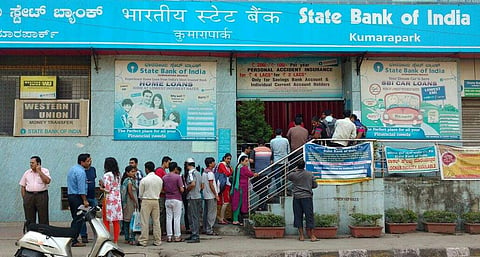

NEW DELHI: Justice B V Nagarathna of the Supreme Court, who gave a dissenting verdict on demonetisation on Monday, said the scrapping of the whole series of Rs 500 and Rs 1,000 currency notes had to be done through a legislation and not through a gazette notification as Parliament cannot be left aloof in a matter of such critical importance.
The apex court in a 4:1 majority verdict upheld the government's 2016 decision to demonetise the Rs 1,000 and Rs 500 denomination notes, saying the decision-making process was not flawed.
In her 124-page minority verdict, Justice Nagarathna held that the demonetisation of the Rs 500 and Rs 1,000 currency notes was vitiated and unlawful.
She said that the power of the central government is vast and hence, "has to be exercised through a plenary legislation rather than by an executive act by issuing a notification."
The judge pointed out that the Parliament must be taken confidence. "It is necessary that Parliament, which consists of the representatives of the people of the country, discusses the matter and thereafter, approves the matter."
She emphasised that the Parliament which is at the centre of our democracy "cannot be left aloof in a matter of such importance. Its views on the subject of demonetisation are critical and of utmost importance." Without Parliament, democracy cannot thrive, she warned.
Justice Nagarathna, who was the juniormost judge in the Constitution bench also comprising justices S A Nazeer, B R Gavai, A S Bopanna and V Ramasubramanian, observed that there was no independent application of mind by the Reserve Bank of India (RBI), and that the entire exercise was carried out in 24 hours.
She noted that on a comparative reading of records submitted by the Centre and the RBI, "it becomes crystal clear that the process of demonetisation of bank notes of Rs 500 and Rs 1,000 commenced or originated from the Central government."
The judge said that the use of phrases like "as desired" by the Centre; government had "recommended" the withdrawal of legal tender of existing Rs 500 and Rs 1,000 notes; recommendation has been "obtained"; were self-explanatory.
"This demonstrates that there was no independent application of mind by the Bank. Neither was there any time for the Bank to apply its mind to such a serious issue," Justice Nagarathna said.
The top court's judgment came on a batch of 58 petitions challenging the demonetisation exercise announced by the Centre on November 8, 2016.
(With PTI inputs)